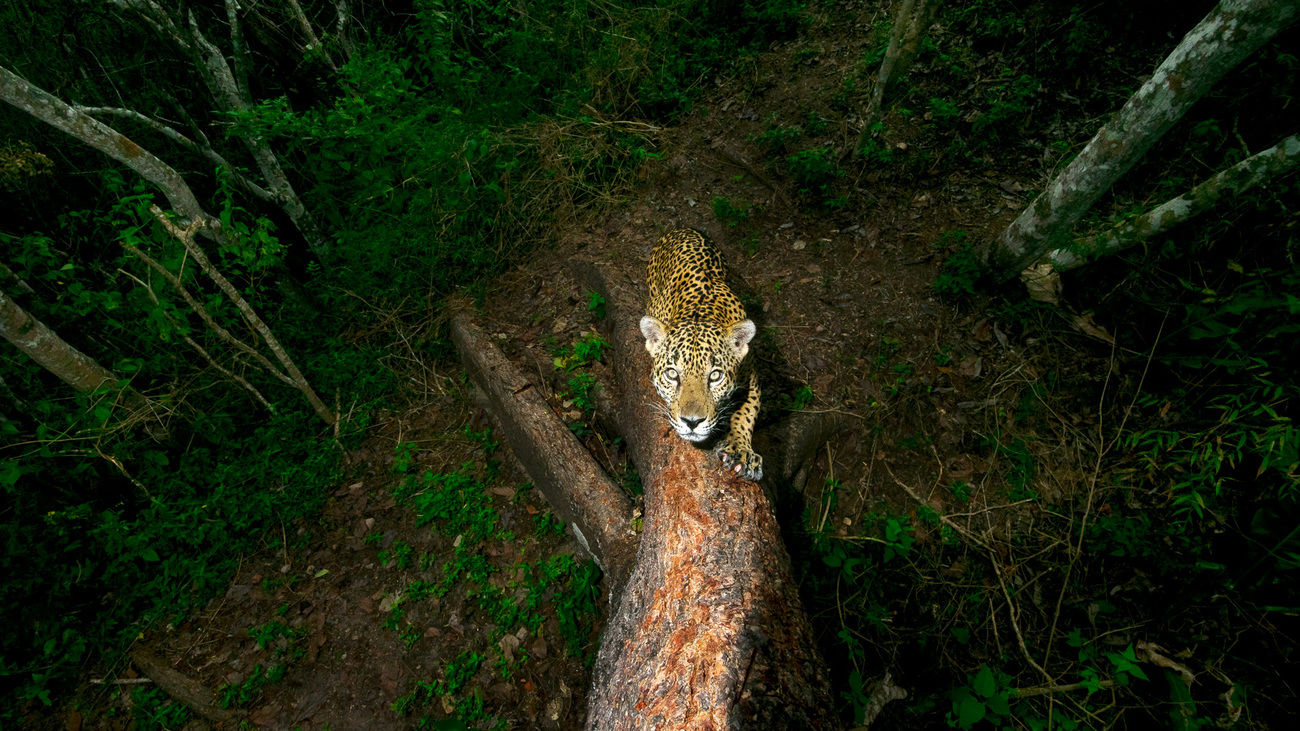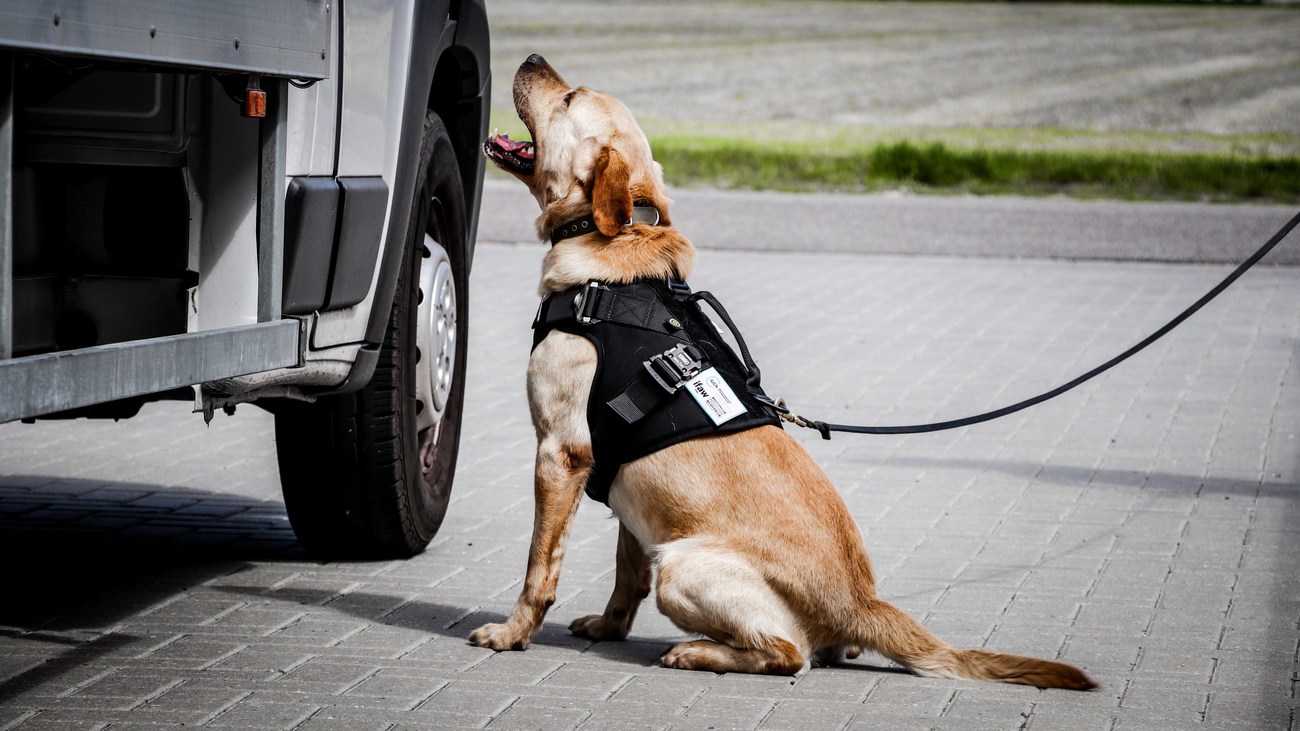Operation Jaguar - South America
To protect jaguars in the Americas, we are helping to fight the growing threat of illegal wildlife tradeDutch detection dogs Bruce and Boris help in the fight against jaguar poachers
Dutch detection dogs Bruce and Boris help in the fight against jaguar poachers

Jaguars, the largest felines in the Americas, play a crucial role in the ecosystem by maintaining biodiversity and a balance in the food web. Although they are a protected species, we have seen increasing incidents of jaguars being poached for their skin, fangs, and other body parts. Trafficked across borders, these body parts are then primarily sold to make jewelry and traditional "medicine."
In recent years, investors in many South American countries have set up huge projects for agriculture, mining, highway construction, and other infrastructure. These developments give poachers easier access to previously isolated jaguar habitats, leading to an increase in jaguar deaths.
Operation Jaguar is a joint project of a consortium led by IUCN NL, IFAW and Earth League International and is made possible by the Dutch Postcode Lottery. Our goal: put an end to poaching and the illegal trade in jaguar parts so this apex predator can continue to fulfill its vital role in the ecosystem.

A nose unlike any other
As part of Operation Jaguar, detection dogs will be trained to use their superb sense of smell to help track down jaguar parts and ultimately disrupt wildlife trafficking. IFAW has enlisted the help of Wesley Visscher of Scent Imprint Conservation Dogs, who has trained his dogs Bruce and Boris specifically in detecting jaguar parts. ARTIS Zoo in Amsterdam, who have a jaguar enclosure, assisted him with that. They allowed the dogs to meet the jaguars from a safe distance, and provided samples of jaguar teeth and urine to familiarize the dogs with the scent.
During the training, the Labrador retriever and Patterdale terrier are placed in different environments where they try to track jaguar scents from boxes, packages, cars and containers. “Since dogs are fond of playing, the scent sample is sometimes also applied to a toy. This way, the dog thinks that he is looking for his toy and will be extra motivated to find it,” says Wesley.
Next steps for Bruce and Boris
The exact destination of the mission remains a secret, but soon the Dutch detection dogs Bruce and Boris will leave for South America. They will be deployed to sea ports and airports, where they will sniff packages, luggage and vehicles in search of jaguar parts. Here, the dogs will become critical members of our team, helping to expose poachers and smugglers, and make a real difference for jaguars.
Related content
Every problem has a solution, every solution needs support.
The problems we face are urgent, complicated, and resistant to change. Real solutions demand creativity, hard work and involvement from people like you.